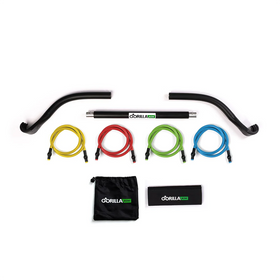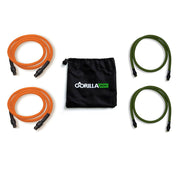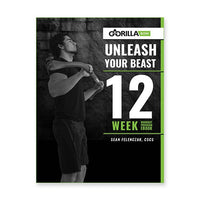Empowering Breast Health: Strength, Support, and Real Awareness

Breast cancer awareness is not just a campaign or a ribbon. It is a commitment to the women facing diagnosis, the survivors rebuilding their bodies and confidence, and the families who walk beside them. Awareness only matters when it leads to action, early detection, compassionate care, and supportive tools that make life during and after treatment less overwhelming.
Research from the World Health Organization shows that breast cancer is the most commonly diagnosed cancer among women globally. The American Cancer Society reports that early detection through regular screenings can increase survival rates significantly, yet fear, stigma, and lack of access still delay diagnosis for thousands of women. Awareness becomes meaningful when it gives women the information, confidence, and support they need to take control of their health.
The Physical and Emotional Weight of Breast Cancer
A diagnosis changes more than the body. Many women report that treatment affects their identity, movement, and energy. Chemotherapy and radiation often cause fatigue and muscle loss, while surgeries can restrict mobility in the arms, shoulders, and chest. Studies published in the Journal of Clinical Oncology confirm that these side effects can last months or even years if not addressed with intentional recovery strategies.
Emotional strain is just as real. According to research by Psycho-Oncology Journal, nearly half of women in treatment experience anxiety or depression. Healing, in every sense, requires more than medicine. It requires strength-building, emotional grounding, and support that respects limitations while encouraging progress.

Where Gentle Movement Makes a Difference
Evidence from the National Institutes of Health shows that low-impact resistance exercise improves energy levels, reduces fatigue, and restores mobility in breast cancer patients and survivors. Movement increases circulation, supports lymphatic drainage, stabilizes joints, and helps prevent long-term stiffness, especially after surgery.
The challenge is that many women do not feel ready, or safe, going back to gyms or lifting traditional weights. That is where adaptable tools become more than fitness equipment. They become part of healing.
How Gorilla Bow Supports Recovery and Strength
The Gorilla Bow is not just about strength training; it offers resistance in a way that respects the body’s condition. The lightweight frame and adjustable bands allow survivors and patients to begin at the lowest intensity and build gradually. This matters because studies in Breast Cancer Research and Treatment found that women recovering from treatment respond best to guided, low-impact resistance exercises rather than heavy equipment.
For women dealing with fatigue, swelling, or limited shoulder rotation, at-home movement is often the safest starting point. The Gorilla Bow makes it possible to stretch, strengthen, and stabilize without pressure or fear of overexertion. It supports posture, arm mobility, and upper body strength, areas commonly affected after radiation or reconstructive surgery.
Unlike traditional weights, resistance bands offer controlled movement, making them ideal for women managing lymphedema risk or scar tissue tension. Rehabilitation experts note that resistance-based exercise helps reduce stiffness and supports lymphatic drainage when done consistently and gently.
Healing Beyond the Hospital
Recovery does not end when treatment does. Many survivors struggle with arm weakness, chest tightness, and emotional disconnect from their bodies. According to the American Society of Clinical Oncology, maintaining strength and mobility after treatment can reduce long-term complications and improve overall quality of life.
The Gorilla Bow offers privacy, accessibility, and adaptability. Women who feel self-conscious, tired, or overstimulated by public spaces can move at home on their own schedule. This freedom reduces the psychological barrier to rebuilding physical strength. Even a few minutes of resistance work each day can gradually restore confidence and capability.
What makes awareness powerful is when it connects people to real tools, real knowledge, and real support. Telling women to “stay strong” without giving them safe ways to rebuild strength is empty encouragement. Offering equipment that adapts to their physical condition shows respect for their journey.
The Role of Prevention and Long-Term Care
Breast cancer awareness also includes prevention and survivorship. Healthy muscle mass, regular movement, and reduced inflammation have all been linked to lower risk of recurrence and improved overall wellness. Research from the National Cancer Institute indicates that consistent, low-impact exercise strengthens the immune system and supports hormonal balance, both important for reducing long-term risk.
Women who are genetically predisposed or have a family history can use portable resistance training as part of a proactive lifestyle. The Gorilla Bow removes common barriers like time, energy, gym access, or fear of injury. It makes strength training approachable rather than intimidating.
Awareness Is Action
Conversations about breast cancer must stretch beyond diagnosis and statistics. Real awareness is about access, empathy, and solutions. When healthcare providers, families, and survivors talk about exercise, it should be in a way that acknowledges fear, fatigue, and the emotional layers of recovery.
Portable tools like the Gorilla Bow create space for healing without pressure. They allow women to ease into movement while honoring the physical and emotional realities of treatment. Every stretch, pull, and breath becomes part of a quiet but meaningful recovery.
Community Support and Emotional Healing in the Recovery Journey
Emotional recovery is often overlooked, yet it is one of the most significant challenges women face during and after breast cancer treatment. Studies from the Breast Cancer Research Foundation highlight that community connection, support groups, and shared experiences reduce anxiety and improve overall emotional health. Whether through in-person groups, online platforms, or family involvement, support systems help women feel seen and understood rather than isolated. When movement and mindset support are combined, recovery becomes less about survival and more about regaining identity and stability.

Adapting Movement to Energy Levels and Physical Limitations
Not every woman can return to physical activity at the same pace, and honoring that difference is essential. Fatigue, surgical pain, lymph node removal, and radiation effects can limit stamina and range of motion. Research from the National Institutes of Health confirms that customizable resistance training allows women to rebuild strength slowly without risking injury. Gorilla Bow’s adjustable bands create flexible movement options for days when energy is low or mobility is limited, making progress consistent rather than overwhelming. Respecting the body’s rhythm leads to better long-term outcomes.
Reducing Fear Around Exercise During Treatment and Recovery
Fear of pain, reinjury, or overexertion keeps many women from returning to movement, even when their doctors recommend it. The Journal of Clinical Oncology reports that gentle resistance exercise is not only safe but also effective in decreasing post-treatment fatigue and stiffness. The key is accessibility, women need tools they can trust and control. The Gorilla Bow replaces heavy gym machines with something familiar, lightweight, and stable. By making exercise feel manageable and unintimidating, it becomes easier for survivors and patients to rebuild confidence in their bodies.
Conclusion
Breast cancer changes lives, but awareness can change outcomes—when it leads to informed choices, early screenings, emotional support, and accessible strength-building solutions. Research proves that gentle resistance exercise improves mobility, reduces fatigue, and supports recovery. The Gorilla Bow provides a safe, adjustable, and empowering way for women to regain control of their bodies at any stage of the journey.
Awareness should not stop at conversation. It should give women the tools, confidence, and hope to move forward with strength, physically and emotionally.
FAQs
Is resistance exercise safe during or after breast cancer treatment?
Yes. Research from the NIH and clinical oncology studies confirms that light resistance training, when approved by a physician, helps reduce fatigue, restore mobility, and support long-term recovery.
Why are portable tools like Gorilla Bow beneficial for survivors?
They allow gentle, adjustable movement at home without the strain of traditional weights. This supports healing, privacy, and progression at a pace that respects individual energy levels and physical limitations.










Leave a comment